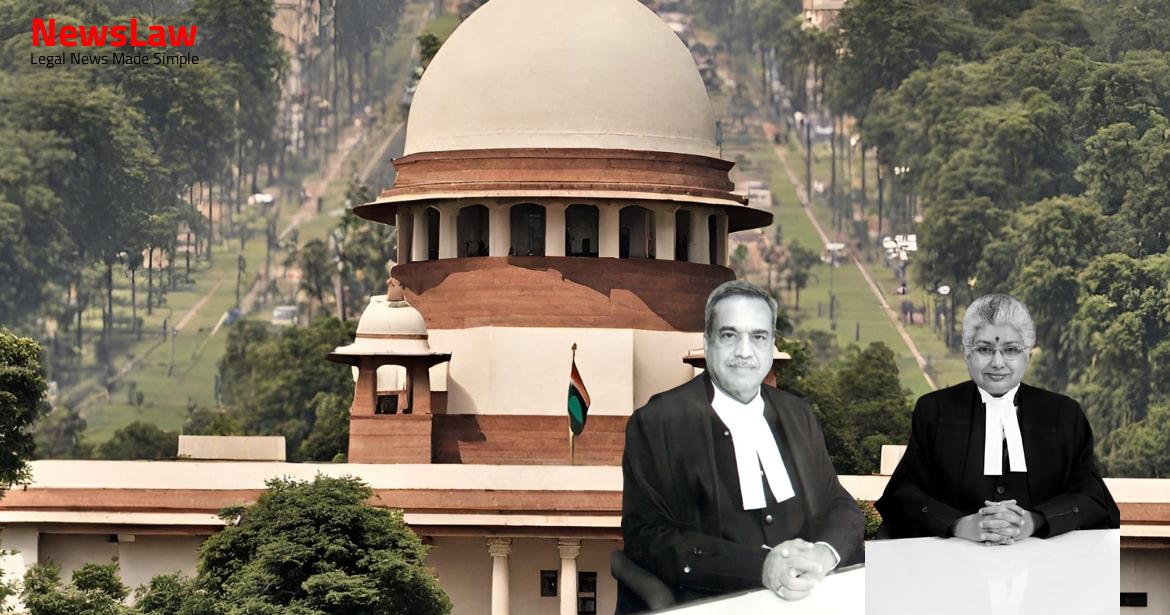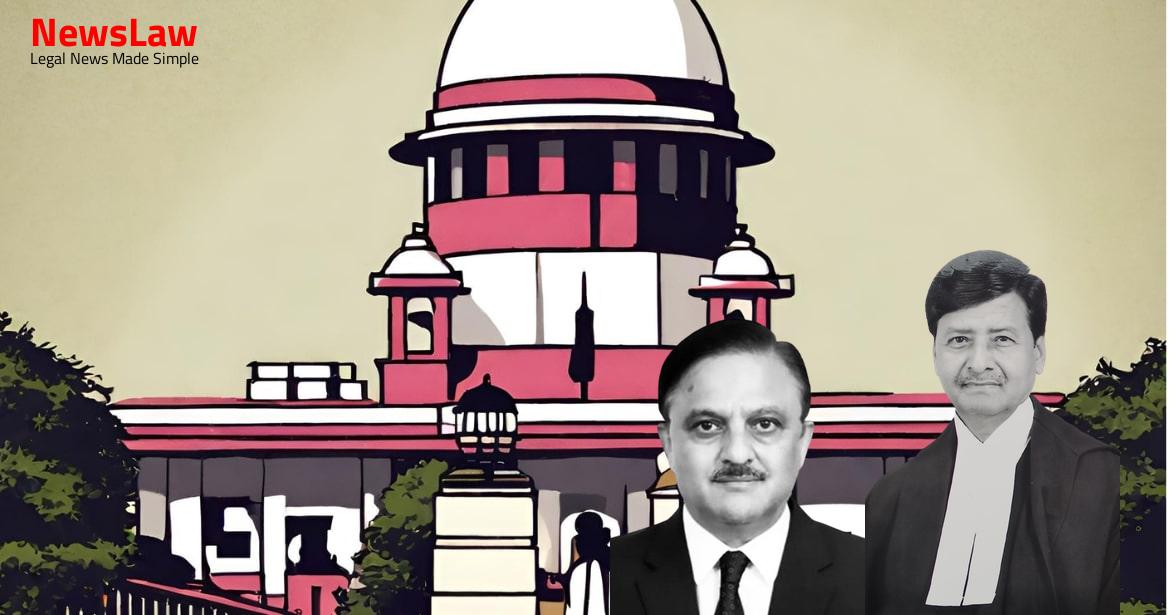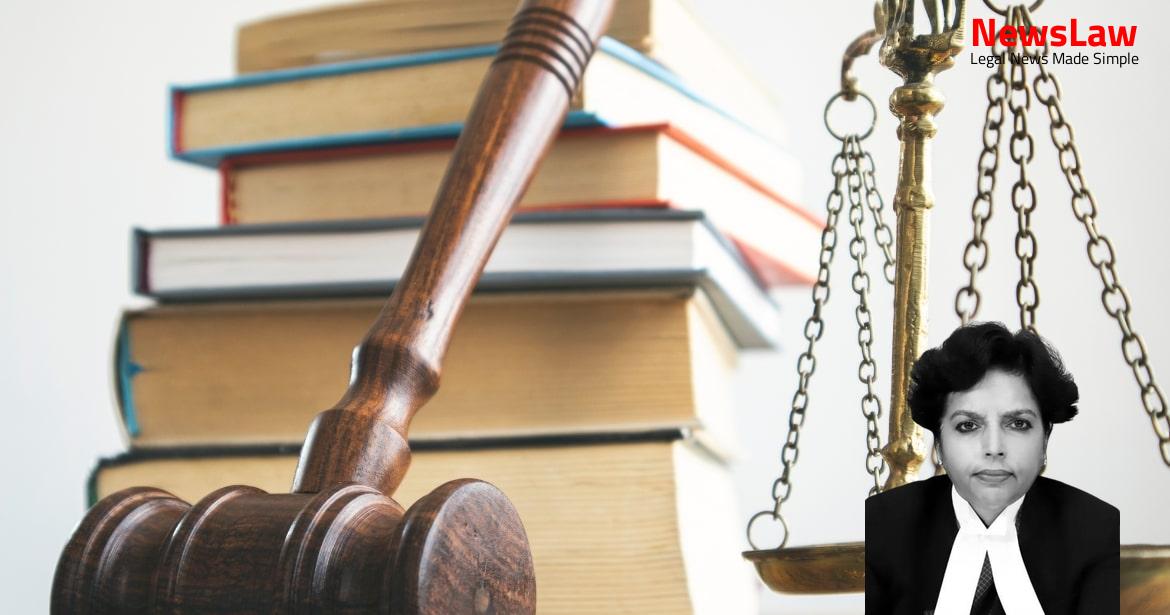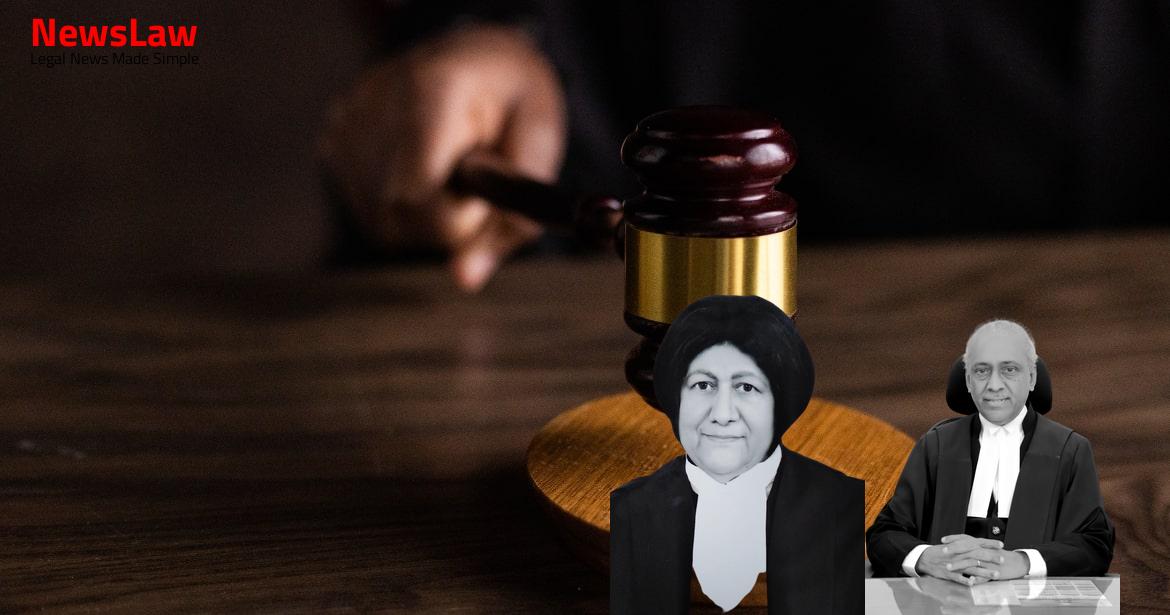The High Court’s detailed legal analysis delves into the constitutional implications of the Governor’s reservation power under the Fifth Schedule. This case focuses on the nuances of reservation rights in India, particularly addressing the potential impact on fundamental rights guaranteed under the Constitution. Stay tuned to understand the intricacies of the court’s reasoning and its implications on the legal framework surrounding reservations.
Facts
- The High Court stayed the implementation of the impugned Notification and Order dated 14.7.2016, except for appointments already made.
- Original writ petitioners claimed that the Notification violated Articles 14 & 16 of the Constitution of India.
- The High Court quashed all appointments of Trained Graduate Teachers made in the Scheduled Districts, directing a fresh selection process.
- Candidates eligible to apply in response to Advertisement No.21 of 2016 can participate in the fresh selection process.
- The High Court declared the Notification and Order unconstitutional and quashed the provision providing 100% reservation for local residents of Scheduled Districts.
- Several interlocutory applications were filed and considered by the High Court.
- The matter was referred to a Larger Bench due to the Constitutional importance involved.
- The High Court held that the Notification and Order were violative of Article 16(3) and 35(a) as such powers are only vested in the Parliament.
- The Governor of Jharkhand aimed to provide additional employment opportunities for local residents of the Scheduled Areas.
- A subsequent order clarified that only local residents of specific Districts were eligible for certain appointments, excluding candidates from Non-Scheduled Districts.
- 8423 posts advertised for Scheduled Districts, 9149 for non-scheduled districts.
- Criteria for local residents of Jharkhand defined for eligibility.
- Advertisement No. 21 of 2016 invited applications for Trained Graduate Teachers.
- Suspension of eligibility conditions recommended by Tribal Advisory Council.
- Order issued by Governor for appointment of local residents in certain districts.
- Candidates challenged the eligibility criteria in High Court through writ petitions.
Also Read: Challenging Legal Presumptions in Negotiable Instrument Cases
Issue
- Issue 1: Can the Governor, exercising powers under paragraph 5(1) of the Fifth Schedule to the Constitution, provide for 100% reservation which may impact rights guaranteed under Part III of the Constitution, particularly Article 16(2)?
- Issue 1 sub-question: Is the Governor’s power under Paragraph 5 of the Fifth Schedule a ‘plenary power’ or an ‘enabling power’ that must align with fundamental rights guaranteed under Part III of the Constitution?
- Issue 1 sub-question: Does the Governor’s power extend to subordinate legislation?
- Issue 2: Is 100% reservation permissible under the Constitution?
- Relevant Constitutional provision: Article 13 – Laws inconsistent with fundamental rights are void
Also Read: Legal Analysis of Admission Irregularities in Educational Institutions
Arguments
- The original writ petitioners approached the High Court challenging the State Government Notification No.5938 and Order No.5939 dated 14.07.2016.
- The Notification and Order restricted only local residents of Thirteen Scheduled Districts in Jharkhand to be eligible for appointment to Class III and IV posts for a period of 10 years.
- One of the original writ petitioners, Soni Kumari, submitted her application for a Non-Scheduled District due to the constraints imposed by the impugned Notification and advertisement.
- Challenges were made to the residency restrictions imposed by the Notification and Order, affecting the eligibility criteria for various posts in the mentioned Districts.
- The petitioners argued that the impugned measures violated Articles 14, 16, and 35 of the Constitution of India, leading to discrimination based on residence.
- They sought protection of the appointments already made and raised concerns about the adverse impact on education if the appointments were set aside.
- The original petitioners willingly participated in the selection process knowing about the reservation for local residents of Scheduled Districts.
- They cannot challenge the conditions of the advertisement after failing to get selected.
- The disruption of already made appointments would result in thousands of innocent teachers losing their jobs compared to 219 contesting individuals.
- The public interest necessitates that the appointments remain undisturbed, and the judgment should apply only prospectively.
- The assertion that less meritorious candidates were appointed is disputed, and the rights of meritorious candidates were not affected.
Also Read: Legal Analysis: Driver Appointment Dispute
Analysis
- The petitioners, who were not party before the High Court, have challenged the State Government’s action of not appointing them.
- The petitioners argued that the State Government misinterpreted the High Court’s judgment in Writ Petition No.1387 of 2017, which was related to the appointment of Trained Graduate Teachers and Advertisement Notification No.21 of 2016.
- The petitioners, however, claimed they were eligible applicants for the posts of Lower Divisional Clerks, Panchayat Secretary, State Stenographer, and were not involved in the issues before the High Court.
- They are awaiting final results and have undergone document verification for the posts in question.
- Candidates from non-Scheduled Districts/Areas may also have the opportunity for appointment as a teacher in Scheduled Districts/Areas based on merit.
- The Court decided not to go for a fresh recruitment process as directed by the High Court, as it would serve no useful purpose.
- The Governor’s power under Para 5(1) of the Fifth Schedule does not extend to making new laws, but rather to modifying existing laws.
- The power does not apply to subordinate legislation or rules framed under Article 309 of the Constitution.
- The reservation that is permissible by protective mode, if made 100 percent, would become discriminatory and impermissible.
- The opportunity of public employment cannot be denied unjustly to individuals, as it is not the prerogative of a few.
- The Governor’s power is an enabling one to meet the object of administering Scheduled Areas and should be harmoniously construed with the foundational principles of the Constitution.
- The Governor can exercise power despite the provisions in Article 245 of the Constitution, and the Parliament’s power to enact laws is not questioned.
- The nonobstante clause in the Fifth Schedule does not confer absolute power on the Governor and must be read in line with the limitations on amending power.
- The High Court has rightly held the Notification and Order as ultra vires to paragraph 5(1) of the Fifth Schedule of the Constitution of India.
- The High Court’s decision is in agreement with the scope of paragraph 5(1) of the Fifth Schedule, allowing determination of legislation and exceptions for Scheduled Areas.
- The High Court did not accept the plea to make the judgment applicable prospectively, impacting appointments in the Scheduled Districts/Areas.
- The Constitution Bench decision in Chebrolu Leela Prasad Rao was considered, affirming the ruling regarding reservations for tribal teachers.
- The High Court referred to the Constitutional importance of the matter, leading to the appeal and subsequent directions.
- The Governor of Jharkhand’s powers under the Fifth Schedule are discussed, emphasizing adherence to constitutional provisions and non-arbitrariness.
- The impact of 100% reservation on the merit, educational quality, and constitutionality was analyzed, aligning with previous legal decisions.
- The notification providing 100% reservations for local residents of Scheduled Districts/Areas was deemed unconstitutional, violating various Articles of the Constitution.
- Considering the vacancies and potential disruption, alternative measures were suggested by the High Court to balance rights and public interest.
- The judgment addressed issues of fundamental rights, reservation limits, legality of amendments under Article 309, and consistency with previous legal precedents.
- In the case of Chebrolu Leela Prasad Rao (supra), the Constitutional Bench of the Court found that a notification providing 100% reservation for local residents of Scheduled Districts violated Articles 14 and 16(4) of the Constitution of India.
- The conditions of eligibility in the notification with a cut-off date of 26-1-1950 were deemed unreasonable and arbitrary.
- The decision in Chebrolu Leela Prasad Rao (supra) was applied to the case at hand, where an impugned Order/Notification provided 100% reservation for local residents of Scheduled Districts, highlighting the distinction between illegal and irregular appointments that cannot be regularized.
- The Governor of Jharkhand aimed to enhance the quality of people in Scheduled Areas by offering additional employment opportunities to local residents through the impugned Order/Notification.
- The judgment in Kailash Chand Sharma (supra) was mentioned but deemed not a binding precedent for future cases, and it was advised not to rely on it.
Decision
- The High Court declared the impugned Notification/Order dated 14.07.2016 as unconstitutional and ultra vires Articles 14, 16(2), 16(3) and 35(a-i) of the Constitution of India.
- The appointment orders were directed to be issued to candidates belonging to the Non-Scheduled Districts by the High Court.
- Contempt proceedings before the High Court have been stayed by an interim order.
- The present appeals challenging the judgment and order passed by the High Court are partly allowed and dismissed to the extent mentioned.
- No costs are imposed in the circumstances of the case.
- The direction is issued under Article 142 of the Constitution of India in the larger public interest of Scheduled Areas/Districts.
Case Title: SATYAJIT KUMAR Vs. THE STATE OF JHARKHAND (2022 INSC 785)
Case Number: C.A. No.-004038-004038 / 2022



